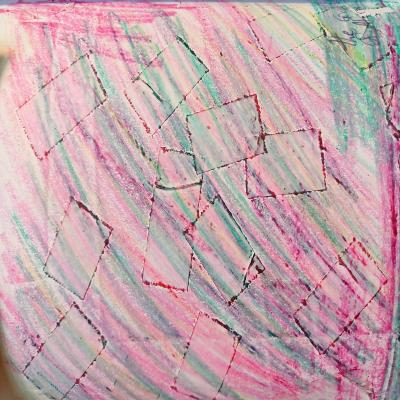Narratives: Pathways of wellbeing and (un)belonging
What is the advantage of using a participatory art-based approach when doing group work with youth?
This was the main focus of Pathways of well-being and (un)belonging among migrant youth in Cape Town, a research carried out by SIHMA – the Scalabrini Institute for Human Mobility in Africa. In South Africa, children and young people with migration backgrounds are navigating their lives amid significant uncertainty and instability. Establishing a sense of home in unfamiliar surroundings is a complex journey. The aim of this work is to deepen understanding of the factors that either hinder or support their development of belonging—and how this, in turn, influences their overall well-being. Participants were selected using purposive sampling, with the help of the Scalabrini Centre of Cape Town, specifically targeting young people who had recently left care (aged 18 to 25 years) and young people who were approaching the age of leaving care (aged 16 to 18 years), within the predefined age range. The
participants were drawn from two registered Child and Youth Care Centres (CYCCs) and one resource centre dedicated to migrant youth.
The choice of a participatory art-based approach allowed the young people to put themselves in control of their own story, choosing how to communicate it. Each of them was able to navigate the theme of the artwork – My belonging story – without the need to verbalise it in a language that, in many cases, does not represent them. During two workshops, the participants constructed a zine, a small art-book containing the pivotal moments of their lives: childhood in the country of origin, the trauma of the migration journey, the diicult integration in a foreign and often hostile land. Especially for the group of 16–18-year-olds, this type of approach facilitated the sharing of experiences and feelings that they would not otherwise have voiced.
The research result reflects aspects common to both groups, such as the feeling of ‘not belonging anywhere’ and the influence of multiple factors on the development of such a feeling. However, the zines highlight a substantial dierence between the two groups: the older children are future-oriented and face the outside world, with all its dangers, in an attempt to find a sense of belonging as they approach adulthood. The younger ones, on the other hand, are focused on the past, trying to deal with in order to find their place in the present - the care centres in which they find themselves.
The artistic approach was not exclusively “static”. The research project and the works created by the young participants were translated into the short movie We Made This!, available on the SIHMA Youtube channel and at the following link: https://www.youtube.com/watch?v=LB95if6y2vQ


